ELECTRIC VEHICLES (EVS) ARE GAINING popularity due to their environmental friendliness, energy efficiency, and lower operating costs. However, EVs come with unique challenges, one of which is the management of their batteries. Different types of batteries are used to power electric vehicles, and deciding which battery is best depends on its energy storage efficiency, production costs, constructive characteristics, safety, and lifespan.
“It is true that EVs have been gaining popularity in recent years as charging infrastructure improves and battery technology becomes more efficient. According to IEA, the figure of electric cars on the road could reach 145 million by 2030. Furthermore, main automakers have been investing a lot in EV machinery and introducing the latest electric models to their lineups. Overall, the transition to EV is well in progress, and it seems likely to continue as more with the environmental and economic benefits of electric vehicles, shares Dr Abhishek Choubey, Head- Industry Institute Partnership Cell (IIPC) & Associate Professor, Department of Mechanical Engineering, Sagar Institute of Science Technology & Research (SISTec), Bhopal.
Lithium-ion batteries are the most utilised technology in electric cars. EVs run on high voltage lithium-Ion battery packs. Lithium-ion batteries have higher energy density (100-265wh/kg) compared to other battery chemistries. They pose a risk of fire under unusual circumstances. It is crucial to operate electric vehicles in pre-defined safety limits to ensure the safety of the user as well as the vehicle.
この記事は Manufacturing Today の April 2023 版に掲載されています。
7 日間の Magzter GOLD 無料トライアルを開始して、何千もの厳選されたプレミアム ストーリー、9,000 以上の雑誌や新聞にアクセスしてください。
すでに購読者です ? サインイン
この記事は Manufacturing Today の April 2023 版に掲載されています。
7 日間の Magzter GOLD 無料トライアルを開始して、何千もの厳選されたプレミアム ストーリー、9,000 以上の雑誌や新聞にアクセスしてください。
すでに購読者です? サインイン
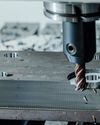
Optimising milling operations
Exploring innovative strategies that are reshaping the milling landscape to meet the challenges of a competitive global market.
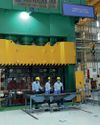
The path to excellence
Tata AutoComp’s Double Deming triumph is testament to quality and innovation
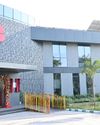
Boosting India's energy efficiency with advanced low voltage motors
Stefan Floeck, Division President of IEC Low Voltage Motors at ABB Motion, discusses the role of low voltage motors in India’s industrial future.

The Tech of E-commerce
Technology is revolutionising e-commerce by enhancing demand forecasting, inventory management, and customer experiences through AI, blockchain, IoT, and real-time data analytics.

Driving Sustainability and Innovation
A conversation with Rajendra B Chunodkar, President Manufacturing Operations, Lupin
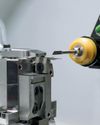
The evolution of machining technologies
The evolution of machining technologies is reshaping the manufacturing landscape, offering unprecedented opportunities for efficiency, precision, and sustainability.
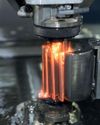
Transforming the future of manufacturing technology
A pre-event report on IMTEX 2025: The premier manufacturing and metal cutting technologies event for

THE MAKE IN INDIA JOURNEY
An analysis of the initiative's impact on the manufacturing sector.
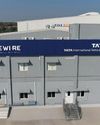
Tata Motors Re.Wi.Re: Innovation meets responsibility
Tata Motors advances circular economy via Re.Wi.Re scrapping facility.
After Apple, Google Pixel set to be manufactured in India
Dixon Technologies' alliance with Compal Electronics is poised to further accelerate India's push to become a global hub for smartphone manufacturing.